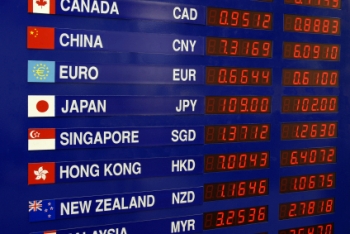Tools for Professionals – International Currency Exchange

Tip 1: Use credit cards whenever possible. These do not incur an exchange fee and so provide the cheapest way to make purchases abroad.
Tip 2: Withdrawal foreign currency using an ATM. Again, this avoids an exchange rate penalty and the ATM fee charged by your local bank is often smaller than the fee charged by currency exchangers.
Note: It is important to accurately estimate the amount of ‘hard’ currency needed so to minimize the number of ATM withdrawals and subsequently ATM use fees incurred. Ask a colleague, friend, or family member living in the country to be visited or familiar with travel there to help you make this estimate. Remember, acquiring too much foreign currency will result in the need to pay a high conversion fee to change the unused foreign money back to your home country’s currency.
Tip 3: When receiving money from a currency exchanger, always check that the money received is the correct denomination and from the correct country. These transactions have a manual component which can result in costly (to you!) errors if the wrong currency is exchanged. For example, receiving Euros instead of British Pounds devalues your transaction (as of this article’s publication a Euro is worth less than a Pound) and may cause you troubles and embarrassment later when trying to spend this money in the United Kingdom.










Leave a Reply
Want to join the discussion?Feel free to contribute!